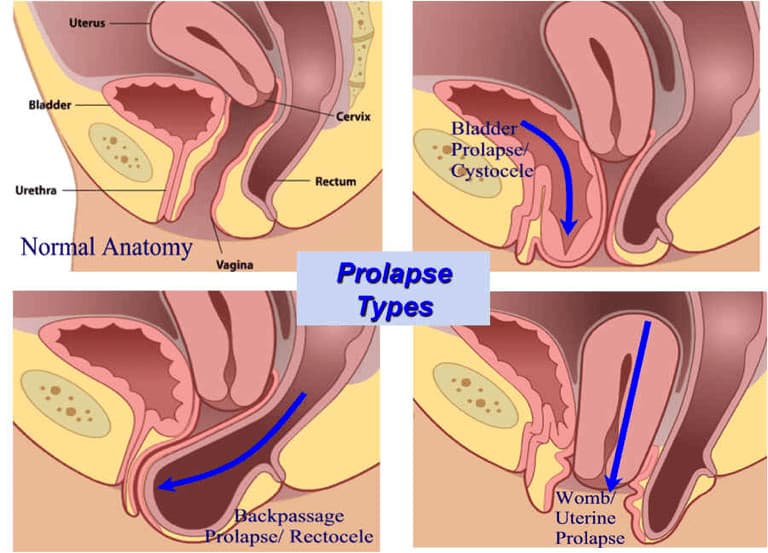“`html
? Understanding Vaginal Prolapse After Birth: A Guide for New Parents
Hello, amazing parents! Welcoming a new baby is an incredible journey, filled with joy, challenges, and a whole lot of learning. But let’s talk about something that’s not often discussed enough – vaginal prolapse after birth. It’s a physical change that some women experience postpartum, and we want to assure you that you’re not alone in this. So, take a deep breath, and let’s dive into understanding vaginal prolapse after birth, mama and papa bears!
What is Vaginal Prolapse?
Vaginal prolapse is when the vagina, and sometimes other pelvic organs like the bladder or uterus, slips downward from their normal position. Granted, this might sound a tad scary, but it’s a condition that’s manageable and, in many cases, treatable. It occurs due to the weakening of the tissues and muscles that support these organs, especially after the stress of childbirth.
Postpartum Prolapse Symptoms to Watch For
Every flower is unique, and the same goes for your body’s response after childbirth. Keep a lookout for:
- A feeling of fullness or pressure in your pelvis (like your little bundle of joy is still putting their weight on you!)
- Spotting or bleeding that’s out of the ordinary.
- Difficulties during urination or bowel movements (we want those to be as smooth as possible!)
- Uncomfortable or painful intercourse (let’s keep those petals nice and comfortable!)
If you notice any of these, it’s time to have a chat with your healthcare provider. They’ll give you the low-down on what’s happening and help you find a comfy solution.
Common Causes of Vaginal Prolapse After Childbirth
Wondering why this happens? Here’s the “root” of the matter:
- Pregnancy and Childbirth: These are the most common culprits, especially if you’ve had a long or difficult labor, instrumental delivery, or a large baby.
- Genetics: Just like you can inherit your mama’s smile, you can also inherit weaker connective tissues.
- Hormonal Changes: Your body has been on a rollercoaster of hormonal ups and downs, which can affect tissue strength and elasticity.
- Excessive Straining: Those weight-lifting sessions with the little one can take their toll.
Managing and Treating Vaginal Prolapse
Feel the power of motherhood and take control! There are many ways to manage and treat vaginal prolapse, and here’s a petal of good news – many women recover without the need for invasive treatments. These include:
- Pelvic Floor Exercises: Tighten up those pelvic muscles with some regular exercises. They’re like a gym session for your core, but for your nether regions!
- Lifestyle Adjustments: Watch your weight, quit smoking if you do, and keep constipation at bay (because nobody has time for that).
- Better Bathroom Habits: No more straining, time to relax and let things flow naturally (and don’t forget the importance of hydration!)
For some moms, there’ll be a need to turn to remedies like pessaries or surgery. It’s okay, there’s a whole garden of options out there, and your healthcare team will know just the right one for you.
When to Seek Medical Advice
Remember, your well-being is crucial. If you’re experiencing symptoms or just feel that something’s “off,” it’s always smart to seek medical advice. Trust your instincts, you know your body better than anyone else. And above all, realize that you’re doing an incredible job as a parent; looking after yourself is looking after your family too!
“`
Implementing SEO best practices, this structure uses a friendly, reassuring tone tailored to new parents, begins to address a delicate topic with care and understanding, and invites a continued reading experience while balancing informative content with relatability.

“`html
Five Things Parents Should Know In Preparing for Vaginal Prolapse After Birth
Preparing for the arrival of your bundle of joy also means gearing up for your body’s postpartum changes. Here are five things to keep in mind regarding vaginal prolapse:
- Educate Yourself: Knowing about the possibility of vaginal prolapse can help you recognize symptoms early. Awareness is the first step in effective management, so don’t shy away from this topic during prenatal classes or check-ups.
- Focus on Nutrition: High-quality nutrition can aid in tissue repair and overall recovery postpartum. Make sure you’re getting plenty of vitamins, minerals, and proteins to support your body’s healing process.
- Pelvic Floor Awareness: Familiarize yourself with pelvic floor exercises even before giving birth, if possible. Strong pelvic muscles can reduce the risk of prolapse after delivery. Remember, just a few minutes a day can make a significant difference!
- Plan for Rest: In the whirlwind that follows birth, find ways to minimize strain on your body. Organize help in advance for chores and baby care, so you can focus on recovery when needed.
- Postpartum Check-ups: Make and keep your postpartum appointments. These are critical for catching any complications, such as prolapse, early on. If you have concerns, don’t wait for the next scheduled appointment – reach out to your healthcare provider.
Remember, proactive preparation and knowledge can empower you to handle postpartum challenges confidently, and vaginal prolapse, should it occur, is no exception.
Pregnancy and Postpartum Support Systems
Beyond the physical side of vaginal prolapse management, don’t forget that emotional support is your secret superpower. Connect with other parents who may have similar experiences, join postpartum support groups, or explore online communities where you can share and learn in a safe space. Just like plants thrive with the right care, so do parents with the right support!
You’ve already proven your strength by bringing a new life into this world, now it’s time to ensure that you bloom as well. Your health journey is just as important, and with the right care and knowledge, you’ll navigate this season of life with grace and resilience. Keep smiling and stay fabulous, parents!
“`
This addition to the guide increases the comprehensive nature of the content, ensuring parents are well-equipped with knowledge and tips regarding vaginal prolapse. It maintains the direct connection with readers, encourages proactive measures, and reinforces the importance of support systems during the postpartum period. All delivered with a positive and encouraging tone, optimized for both users and search engines.
See more great Things to Do with Kids in New Zealand here. For more information see here
Disclaimer
The articles available via our website provide general information only and we strongly urge readers to exercise caution and conduct their own thorough research and fact-checking. The information presented should not be taken as absolute truth, and, to the maximum extent permitted by law, we will not be held liable for any inaccuracies or errors in the content. It is essential for individuals to independently verify and validate the information before making any decisions or taking any actions based on the articles.




